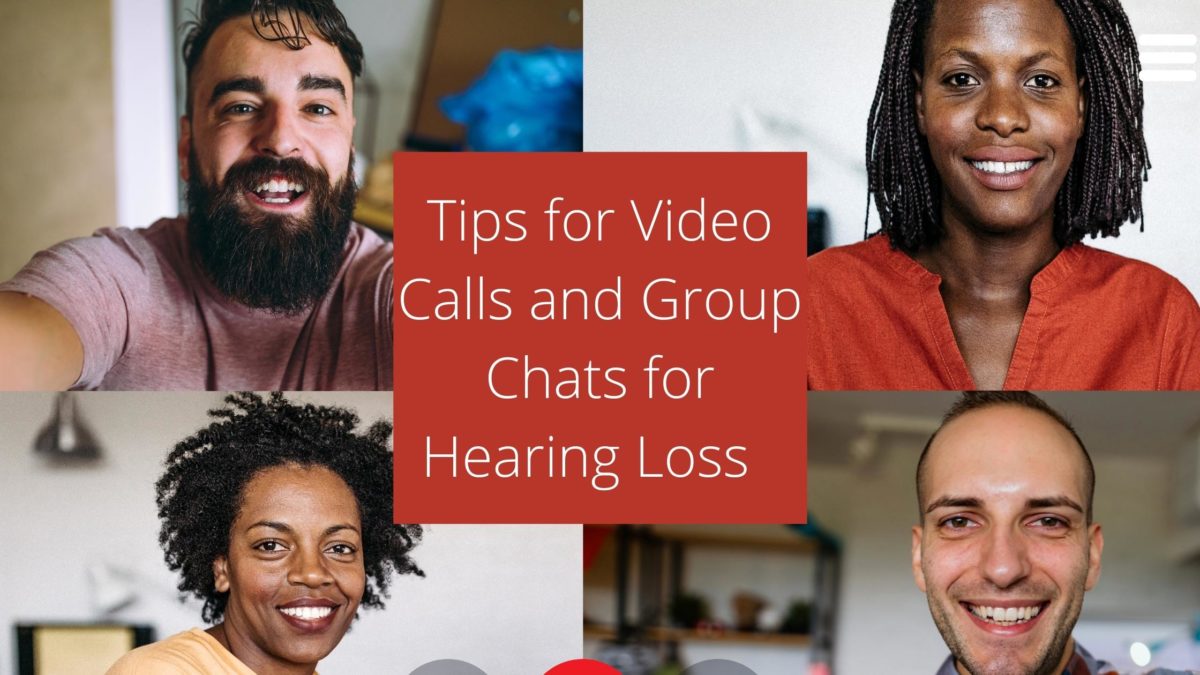In this new era of video calls and group chats, many new challenges present themselves. Lagging audio, freezing video, crosstalk, and connection outages can make our communication frustrating and ineffective from time to time. However, the benefits of being able to see and hear our colleagues, friends, and loved ones have enriched our lives in many ways as well, particularly when travel and shared physical space is not possible.
Those who have hearing loss face even greater challenges in the video call environment. With already spotty audio quality, hearing loss can add to the confusion. Let’s take a moment to consider some helpful tips and tricks that make video calls and group chats easier for those with hearing loss. The benefits of putting these tips in practice can lead to stronger connections across distances, whether those connections are between coworkers or loved ones.
Set Yourself Up for Success
Planning is crucial for a successful video call, and you don’t need to buy a lot of bells and whistles to make your environment successful. Clear video is as important as clear audio, particularly for those who rely on facial expressions and mouth movements to understand speech. Getting adequate lighting can help others see you, and it is a great accommodation strategy for those who have hearing loss in a video call. Putting your computer in a place where there is minimal background noise helps to enhance the crispness of audio quality, and investing in a set of computer speakers can give you better audio quality in many settings. Some people with hearing loss prefer to wear headphones during a video call, raising the volume of speakers, while others prefer to use sufficient acoustic sound from speakers instead.
Establish Video Call Courtesy
Some of the basic habits of video call courtesy can help those with hearing loss. Try to avoid crosstalk whenever possible, because two people speaking at once can lead to gaps in audio service. In larger groups, you might want to establish a habit of raising a hand before speaking. This convention might feel awkward at first, but it can help pace the conversation appropriately. When you are not speaking, it helps to keep your audio muted, particularly in larger groups. The din of background noise can cause problems for others who are trying to make out the sonic details of speech. Above all, try to speak clearly and close enough to the microphone to give sufficient volume.
Take Advantage of Captioning
Although the technology is still under development, real-time audio captioning is increasingly available in video calls. Whereas transcripts and closed captioning took too long in the past, the latest services make it possible to estimate text beneath speakers in a live setting. These estimates are not always perfect, and some of the errors can be confusing, but the combination of listening and reading can be very helpful for those with hearing loss. If your platform does not automatically provide audio captions, you can download third-party services for a fee. Some opt for a dual-screen set-up, using the video of the call on one interface and a captioning device directly below that other screen.
Seek Treatment for Hearing Loss
These solutions can do a lot to improve the quality of video calls and group chats for people with hearing loss, but they don’t solve all the problems that are bound to arise. Furthermore, many forms of hearing loss are degenerative, meaning that it can get worse with time. The adjustments you make today might not work tomorrow, so the best solution is to seek durable treatment.
The first step will most likely be to get a thorough diagnosis of your needs in the form of a hearing test, and a consultation will give you an opportunity to discuss your use of video calls, as well as the possibility of Bluetooth streaming features in the latest hearing aids. Many people benefit greatly from using hearing aids during video calls, filling in the gaps in sound that make speech so difficult to understand.
If you are interested in pursuing treatment for hearing loss, all you need to do is contact us today for an appointment!

